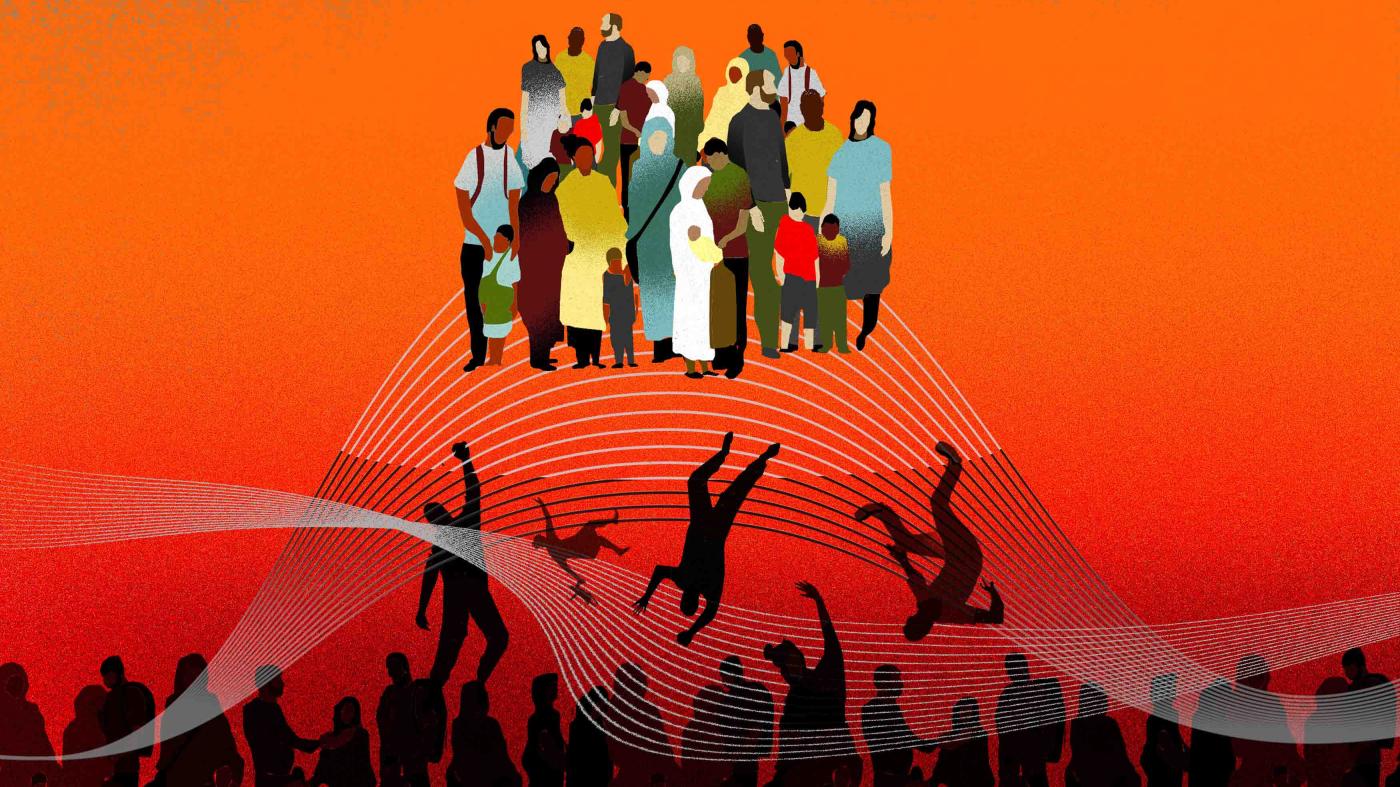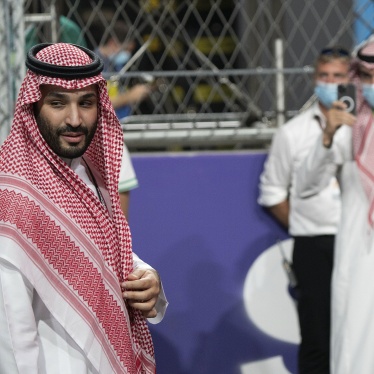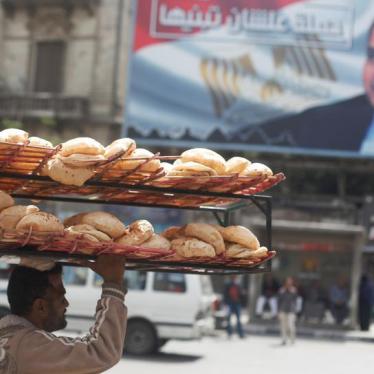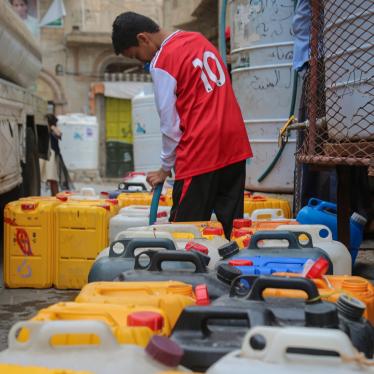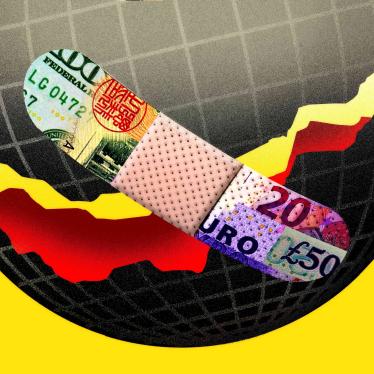Yet glaring flaws in the development of these technologies are leading governments to exclude people from much-needed services based on errors, discriminatory policies, and even stereotypes of what poverty looks like. Jordan’s cash transfer program is a case in point. Amy Braunschweiger speaks with Senior Researcher Amos Toh about the flaws in Jordan’s program and the dangers of using automation to solve complex social problems.
Tell me about Jordan’s cash transfer program.
It’s a program financed by the World Bank called Takaful, a word similar to “solidarity” in Arabic. Takaful distributes cash transfers to households based on their socio-economic status. It was launched in 2019, after Jordan implemented economic reforms as part of IMF [International Monetary Fund] loan programs, which led to economic hardship and widespread protests. These reforms included removing fuel subsidies and lowering the threshold for paying income tax.
Jordan and its international partners saw the need to strengthen Jordan’s social protection system. From there, this program was born.
How does the program work?
Jordan’s government first assesses whether applicants meet eligibility criteria. For example, is the head of the household a Jordanian citizen living under the official poverty line? For families that make the cut, it applies an algorithm to estimate their income and wealth, ranking them from least poor to poorest. Then the government makes cash transfers to the households ranked most vulnerable.
The algorithm uses 57 indicators to assess people’s economic vulnerability. These include household size, whether they own assets like cars, livestock, or businesses, whether they are a female or male head of household, and various aspects of the family home – say, its size, or the family’s electricity and water consumption.
Some of these indicators are quite problematic.
Owning a car could make you less likely to qualify for the program, depending on factors such as how old the car is or what it’s worth. But in speaking with people, we found that car ownership doesn’t say much about the hardships they’re facing. Some people needed their car for work, but were barely scraping by. Others hadn’t used their car for a while because they had no money for petrol. Still others couldn’t afford to do the paperwork to sell their car.
Bigger households are considered more vulnerable, all else being equal. But even household size calculations are problematic and politically charged because they only count Jordanian members. This discriminates against Jordanian women with non-Jordanian spouses, because women can’t pass their citizenship onto spouses or children the way Jordanian men can. So factoring in household size reinforces gender and citizenship discrimination.
On top of that, the algorithm uses inaccurate data. When applying, you have to submit your income and expense figures. But applicants we spoke with said that your income has to be the same or higher than your expenses for your submission to go through. Yet the government insists that they allow people to list expenses that are around 20 percent higher than their income.
The government said it designed the system this way so that people couldn’t artificially inflate expenses to get more support. But for households applying for this program, expenses can far exceed what they’re bringing in. To cope, they do odd jobs, borrow money, take out loans, ask friends and family for assistance. There is no way to reflect this in the application. Instead, the system compels people to make up their figures if they are facing a significant shortfall.
The underlying problem is that this type of poverty targeting doesn’t work, and it undermines people’s right to social security and other economic and social rights.
How do people apply for the program?
The government has made the application available online, but you need a smart phone or a computer with internet access. Yet 35 percent of Jordan’s population has no access to mobile broadband, and 21 percent don’t have mobile phones.
For people that can’t apply online, they can go to certain government offices or a temporary registration center. But some people don’t know about this service or prefer to ask their families or friends to help them. We also found that others were paying a fee to submit their application through mobile phone shops or maktabehs, stores that sell office supplies and children’s toys. After they register, they may still need to go to the nearest government office to submit additional paperwork. If they live in rural areas, this could mean traveling a long distance.
The benefits are usually paid through e-wallets. But the process of withdrawing payments imposes hidden costs. Take Misha’al, for example. He paid a mobile phone shop 3 dinars ($4.20) to withdraw his benefit, and an admin fee of half a dinar to the e-wallet company ($0.70). This is on top of the 3 dinars he paid to a maktabeh to help him apply for the benefit, and another 2 dinars ($2.80) to travel by bus to the maktabeh, which is 35 kilometers from his home. His monthly benefit was 101 dinars ($142), but after all these costs, he only took home 92.5 dinars ($130). He’s effectively paying a 8.5 percent surcharge to obtain the benefit.
For this report you both sifted through reams of data and interviewed 70 people. Did anyone you spoke with stand out in particular?
Aseel, who is 29 and works at a plastics factory, stood out to me. She takes freelance photography gigs to make ends meet. She covers some of her mom’s medical bills and often feeds her brothers and sisters. She qualified for emergency cash transfers that were distributed to help people cope with the Covid-19 pandemic, but hasn’t qualified for permanent assistance under Takaful. She doesn’t know why. Her brother also didn’t qualify for Takaful, and now he can’t pay rent.
Aseel told me their experiences are hardly unique. “My story is representative of the youth in the country. We juggle a lot of responsibilities and side jobs,” she said. “I don’t have time to tell my mom how I’m doing because I am too busy. I don’t see my friends anymore because I’m too busy working…people are just so desperate.”
Aseel’s story shows why this poverty targeted program is woefully inadequate. When you use an algorithm to try to nail down people’s hardships and economic lives, you get a very superficial and often inaccurate assessment. The use of technology just obscures the problems by trying to summarize complex lives with simple and inaccurate indicators. Using it to make decisions as to whether people get support is dangerous.
Jordan is just one example of what’s happening with automating social protection around the world. How widely are they used?
Out of ten countries in the Middle East and North Africa where the World Bank has active projects, eight received World Bank loans to introduce or upgrade poverty targeting technology.
Also, the World Bank said that between 2013 and 2022, the number of countries operating poverty targeting technology jumped to 60 from 23. Automated poverty targeting in these countries could be affecting millions of people.
It’s true that governments like Jordan are active leaders of these projects. But when the Bank is a key source of financing, it has a lot of say in how they are designed.
If poverty targeting doesn’t work, what are we recommending?
What we want is a fundamental shift in the way social protection systems are built. Using better technology and data to try and fix poverty targeting is like trying to replace the hubcaps when the wheels are falling off – a woefully insufficient way to address a fundamental flaw.
We want to see countries transition to universal social protection. In practice, this means all people in certain life situations get support, regardless of income or wealth. For example, all families with children below a certain age, or people with a disability, or people above retirement age, would be eligible for benefits. We are not ruling out targeting some programs based on socio-economic status, but these programs should be part of a comprehensive social protection system that supports everyone.
I realize that having wealthy people get public support could seem counterintuitive. But under human rights law, everyone has a right to social security, and universal social protection is the best way to protect this right. Eligibility requirements are much simpler, and they set up people for success, as opposed to trying – and often failing – to catch them when hardship hits. Simpler requirements also mean that people won’t have to fill out arduous online forms or be savvy about technology to get the benefit.
Universal social protection could also be a boon for people’s right to privacy. As of today, Jordan does not have a data protection law, and the law being considered has loopholes you could drive a truck through. Yet think about the amount of data they’re collecting through the cash transfer program. This is a country with pervasive government surveillance and crackdowns against people protesting economic grievances. When people apply for cash transfer programs, they give the government all this data about their lives.
Still, though, why finance the wealthy? How does that make sense?
The wealthy are a relatively small percentage of the population, compared to the sheer number of people that universal benefits would protect from economic insecurity. Additionally, there’s the cost of creating a system to target people who need support. This can be more expensive than giving the wealthy benefits, and targeted systems are generally prone to error, particularly in countries like Jordan, where it’s hard to know someone’s true income since many people have informal jobs. And as our research shows, poverty targeting errors disproportionately exclude people at risk of hardship, not the wealthy.
In any case, universal social programs should be financed through progressive income and corporate taxes, where taxes increase with earnings. So millionaires who receive benefits would essentially give the money back paying taxes.
Universal programs – whether for social protection or public services, like health care and education – also build solidarity, making everyone feel part of society and ensuring nobody is unfairly excluded. On the other hand, programs that draw arbitrary lines in the sand for who does or does not get support breed mistrust and resentment. Several people we spoke to in Jordan questioned why they weren’t eligible for Takaful while people that they knew were better off benefited. Others complained that people are more likely to get benefits if they have political connections. We weren’t able to prove this, but it shows how pitting one household’s needs against another fuels feelings of unfairness and resentment.
But wouldn’t implementing universal social programs cost a lot for a country already under financial pressure?
Development Pathways, a social policy think tank, projected that if Jordan introduced a modest package of universal child, old age, and disability benefits, it would cost 280 million dinars ($394.7 million), or less than one percent of GDP, during the program’s first year, going up to about two percent by 2035.
How do you fund this? It’s not just about how governments use their existing resources, it’s also about how they grow revenue. For example, they could increase revenues by tackling tax avoidance and tax evasion, or by implementing progressive taxes. Research shows that spending on social protection comes back to the government through taxes because it means people spend more.
What would Jordan’s government say to this?
The government insists its algorithm is a comprehensive measure of poverty and that none of the indicators used to assess poverty would, on their own, exclude people from Takaful. In other words, having an old car or a small shop doesn’t automatically disqualify you.
But our concern is more fundamental. Using these indicators gives Takaful the veneer of being objective, but people experience it as arbitrary, especially because such a small percentage of the population receive cash transfers. So, an old car or fallow piece of family land may push a family’s ranking too high to be selected for support, even though they struggle to afford food and rent.
How about the World Bank?
In 2015, the World Bank said it would support universal social protection, recognizing that it is needed to reduce poverty and inequality. The Bank even co-chairs a global initiative to achieve universal social protection by 2030. At the same time, it is financing expensive technologies like the system in Jordan to enable poverty-targeting because it argues that many governments simply don’t have the money for universal programs. But the International Labour Organization, a UN Commission, and others have cast doubt on the Bank’s approach.
The World Bank also believes better technology and better data can improve targeting. But this is misguided and ends up perpetuating errors and poverty stereotyping. A good use of technology would be to facilitate the transition to universal social protection – for example, by building population registries or national databases on births, deaths, and other vital statistics. Because universal social protection is an investment that pays off in the long run.
*This interview has been edited and condensed.
